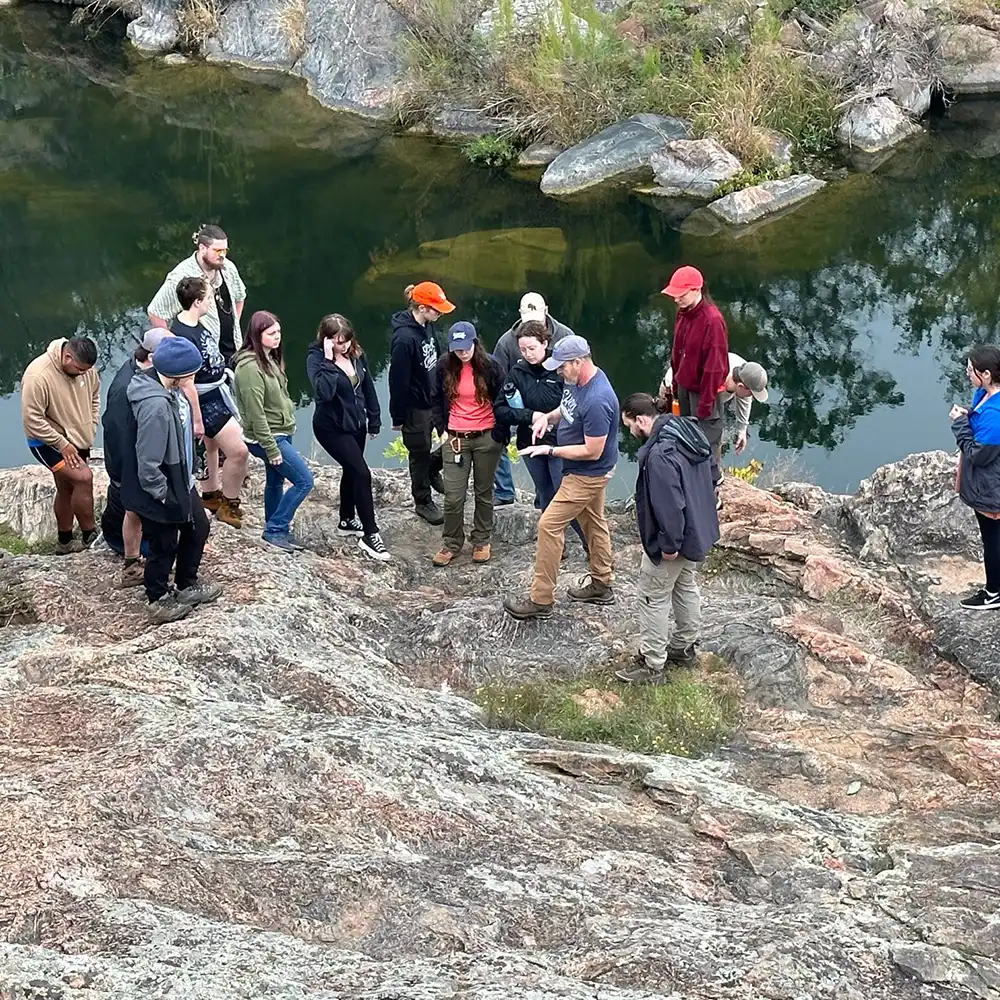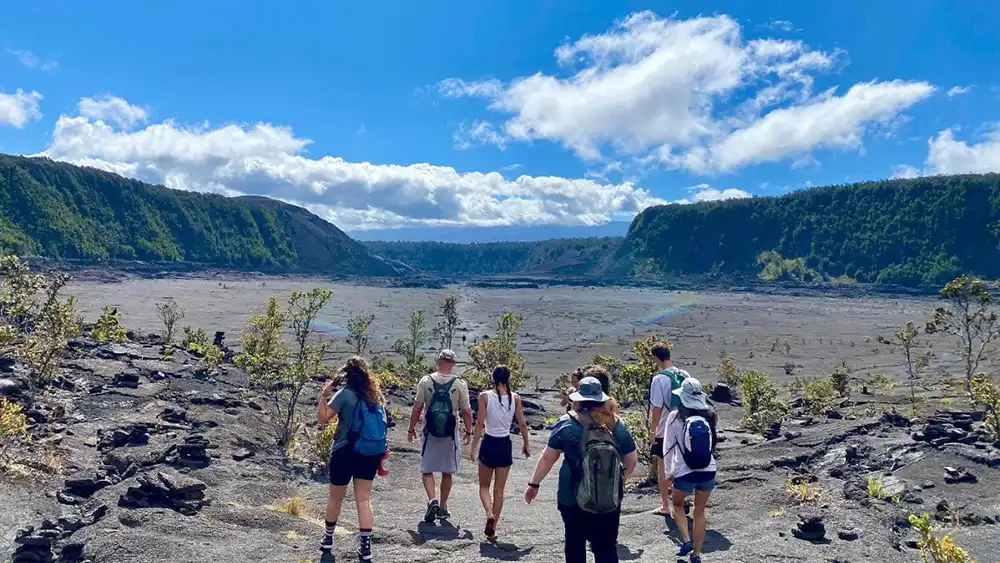Geology
SHSU’s B.S. in Geology prepares students through fieldwork, lab analysis, and research for careers in energy, environment, teaching, and graduate studies.

- Bachelor of Science
- Huntsville
- Face to Face
4 Years
Build To Something Greater in Geology
The B.S. in Geology at SHSU equips students to understand Earth’s structure, resources, and hazards through hands-on field and laboratory work. Geology majors complete a required two-week field methods course in West Texas/New Mexico and explore sites like the Hill Country, Oklahoma, and Arkansas. The curriculum blends chemistry, physics, and GIS, preparing graduates for roles in environmental consulting, petroleum, and hazard assessment.

Groundbreaking Geology Work
SHSU’s B.S. in Geology offers a robust blend of extensive fieldwork and advanced laboratory training. Students develop mapping, analytical, GIS, and GPS competencies while studying Earth’s structure and processes. The program’s immersive experiences, modern tools, and interdisciplinary coursework prepare graduates for impactful careers across environmental, energy, educational, and research sectors.
-
Immersive Field Experience
Undergo extensive field training in diverse locations—from Texas’s Hill Country to New Mexico—reinforcing classroom concepts through hands-on geologic mapping and sampling.
-
Modern Lab & GIS Skills
Students use state-of-the-art lab equipment (XRF, coring systems, flumes), GIS, and GPS tools, developing technical skills prized in environmental and resource sectors.
-
Versatile Career Pathways
Graduates enter booming industries including environmental consulting, oil & gas, hazard assessment, education, or continue to graduate school, with a strong academic and practical base.

Find Your Future Career
Alumni work as environmental consultants, petroleum geologists, geological hazard assessors, GIS specialists, educators, or pursue graduate studies in geosciences.

Expert Geology Faculty
Our faculty have extensive experience in the field and are committed to your success.
Become a Bearkat
Ready to see what a degree can do for you or to start your application to SHSU? Our Admissions team is here to help.